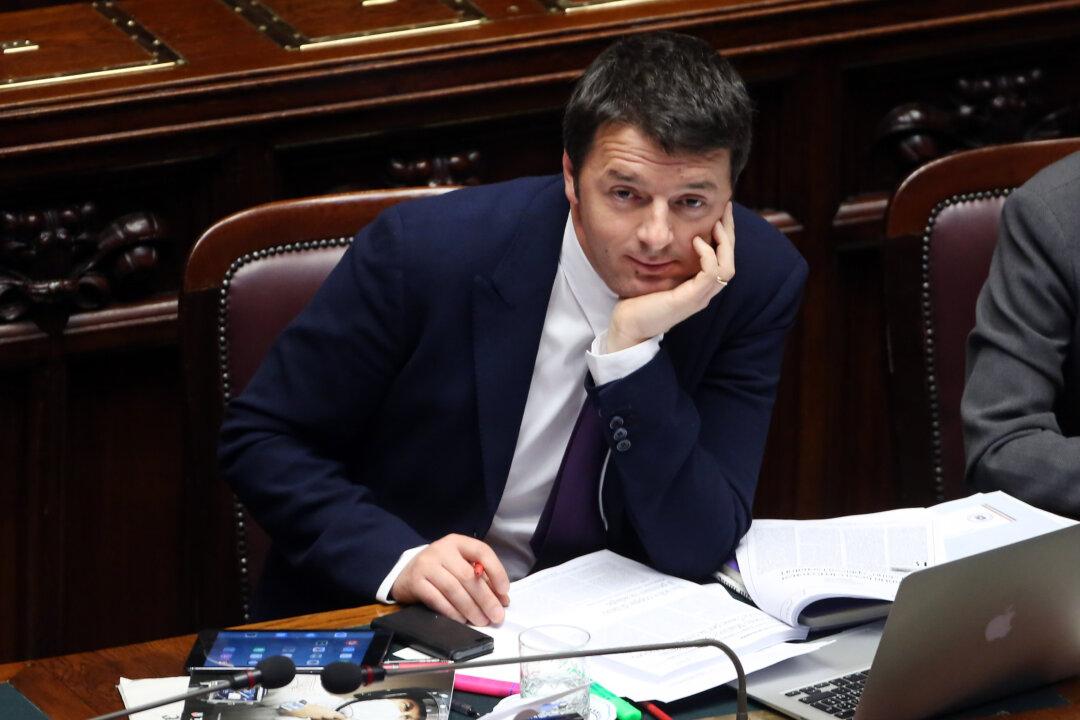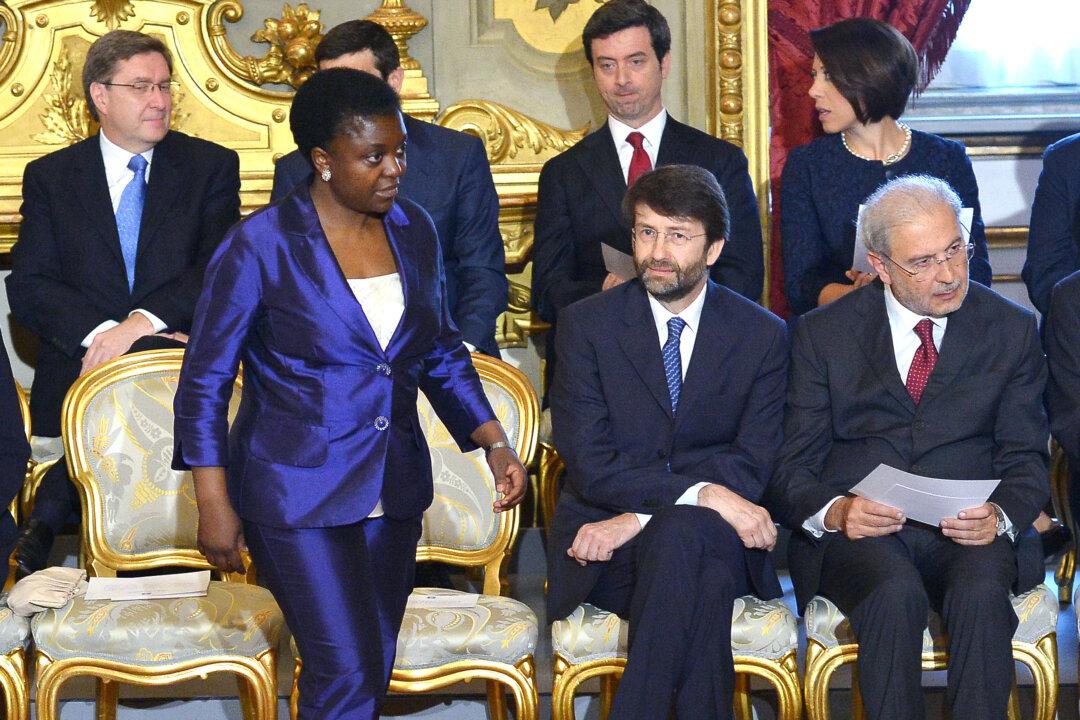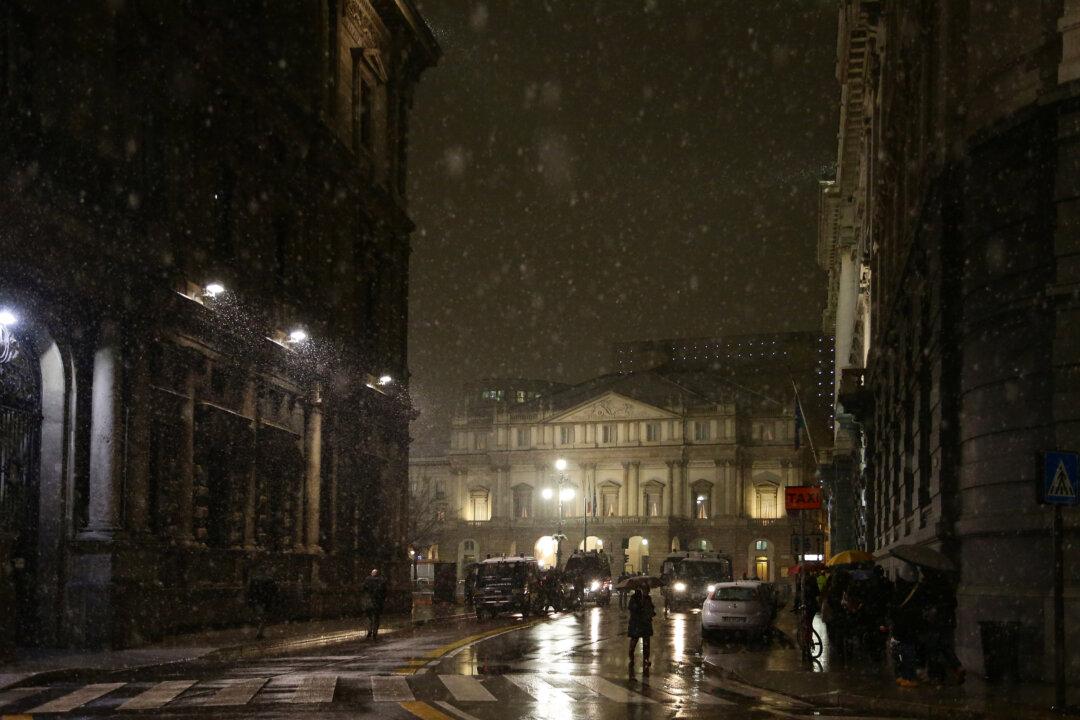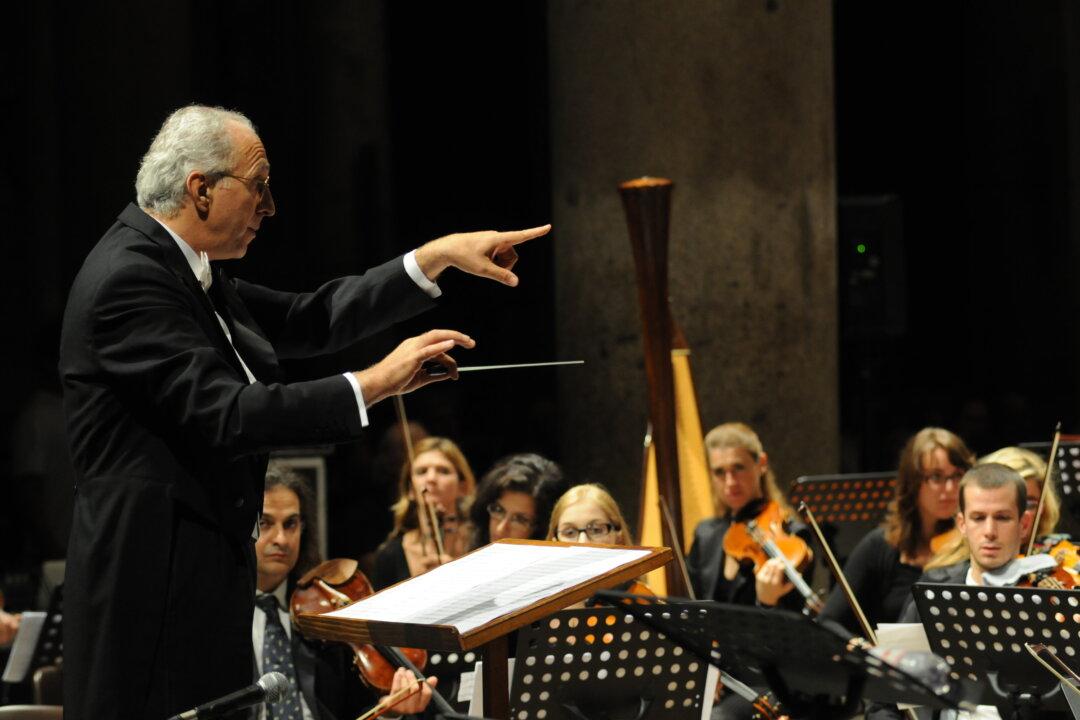BARI, Italy—Italy has a new prime minister. The 39-year-old Matteo Renzi is the youngest prime minister in the country’s history, and he is bringing the Italian left to the forefront.
Historically led by not-so-charismatic figures, the Italian left has been held hostage by the rightist leader Silvio Berlusconi for years, and has been sometimes considered the choice of those who just didn’t like Berlusconi. To be charismatic is considered by some Italians a rightist thing.
Matteo Renzi calls himself “the wrecker” because he wants to rejuvenate his party by eradicating the old values of the post-communist Italian left. He won his battle in the Democratic Party vote with ease and now he has a strong lead in the Party.
Renzi is adamant. He set out a courageous program of reforms, saying he would change the electoral law; he would eliminate the Senate, and would reform the powers of local autonomies in just a few months. Almost all the parties in Parliament supported many of his proposed reforms, but still nobody was able to push them forward.
In order to reach goals you must find a middle point between the political forces even if it “doesn’t satisfy you at best,” Renzi said during his speech in which he asked for the Senate’s confidence.
“Should we lose, we would not try to find justifications,” Renzi added. “If we lose this challenge, it will only be my fault.”
Italy has been going through a profound political crisis. Many people have lost any trust they had in politicians. Renzi said that this is the last chance for the Democratic Party to regain that trust.
“Our culture could make us a global superpower,” he said. Political commentator Alessandro Lattarulo told Epoch Times, Renzi’s speech “destroyed the liturgy of the past” conventional speeches of prime ministers.
Renzi’s speech to the Senate was about an hour long. He did not read from a sheet or teleprompter. “He tried to speak to the citizens, more than to the politicians there,” Lattarulo commented.
Renzi is Italy’s third consecutive prime minister who was not a candidate for that role during elections. The first was technocrat Mario Monti and the second was Enrico Letta, a member of the Democratic Party but a nephew of Gianni Letta, one of Berlusconi’s most trusted supporters.
‘The Wrecker’ or Just Another Berlusconi?
Other than charisma, mutual sympathy seems to bring Renzi and Berlusconi together. The new electoral law that Renzi proposed is a result of an agreement between him and Berlusconi, who is in the opposition.
Renzi’s open-mindedness and fast methods—like pursuing his goals even at the cost of making deals with opposition forces—has left many people confident in the young prime minister’s capability of making reforms, while many others still think he is too similar to Berlusconi.
The current electoral law can give the majority to a single political force, considering that the left, the right, and the 5 Star Movement would have a similar number of votes, according to electoral pools. This law is the reason why Italy has been forced to have a large coalition government.
So, while even the rightists tend to have a good opinion of him, Renzi’s biggest opponent is the center 5 Star Movement (M5S), founded by former comedian Beppe Grillo. The M5S considers Renzi’s rhetoric as pure propaganda, noting that many things he says can be good, but he has yet to show for it.
They also said Renzi is allied with the “big powers”—a generic term for bankers, high-level entrepreneurs, and elites that allegedly control Italian politics.
In Italy, most newspapers have a political stance and regularly influence Italian political life. The fact that Repubblica has some concrete influence in Italian politics “is well known,” Lattarulo said. “It’s a long time that it tries to pose almost as nothing less than a real political party.” However, Lattarulo doesn’t think it could possibly have the power to choose the ministers of a government.
A Look Into the Past
To determine if Renzi, other than being a good speaker, is also a good policymaker, one can look at how he governed Florence, when he was the mayor of the city until he became prime minister.
As the mayor of Florence, Renzi made some courageous choices, like changing some traffic zones away from the center where many of the city’s artistic monuments are, thus preserving them from the pollution created by cars. This actually disappointed many people who had interests in having public transportation near the center, while showing Renzi’s real interest in promoting beauty and culture.
However, some said he did that just to boost his image, but he still didn’t work effectively on many aspects of city life.




